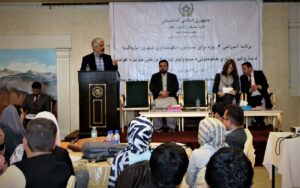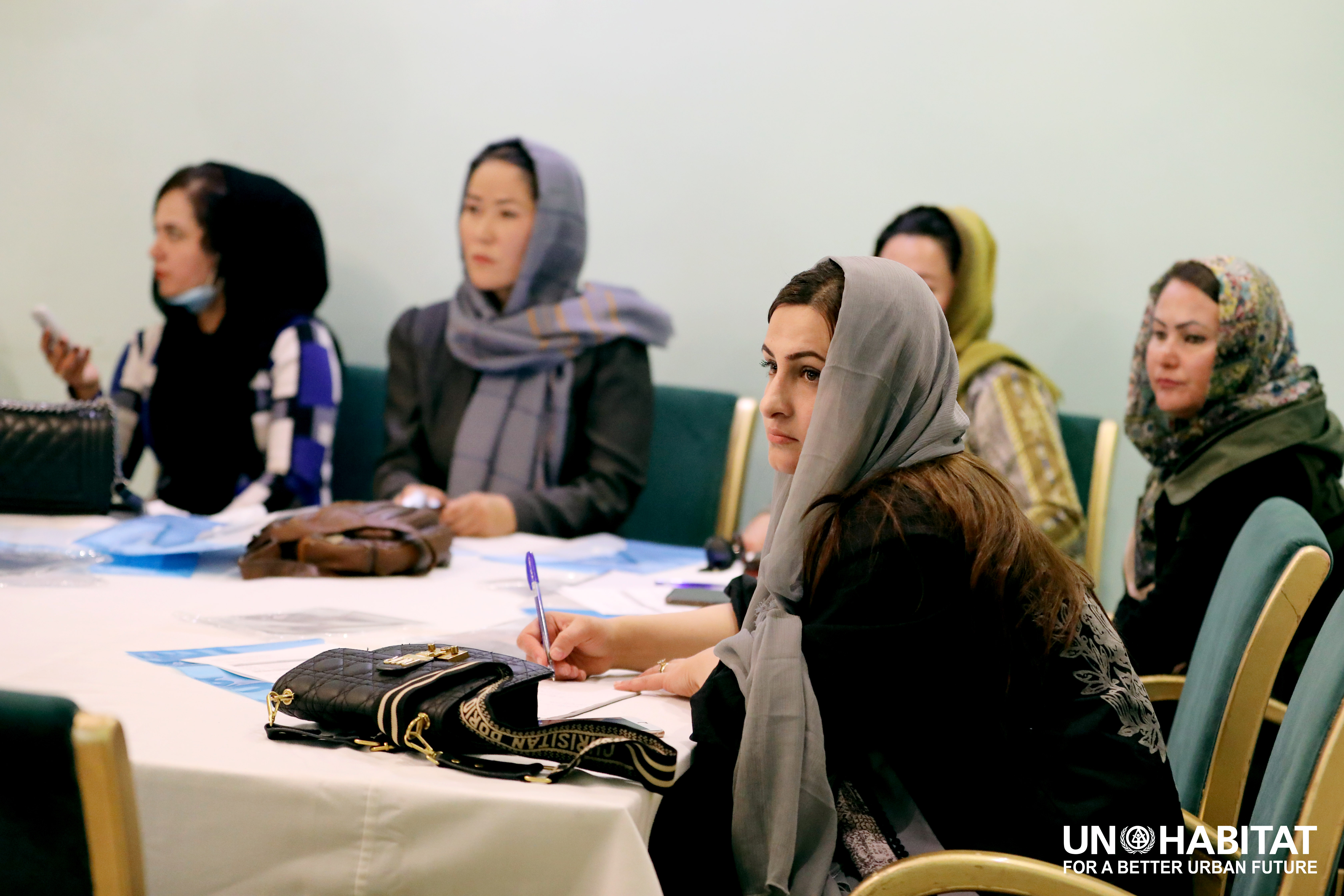Bringing 52 municipalities from 33 provinces together to improve urban safety and governance in Afghanista
Kabul, Afghanistan, 08 April 2021 – Eighty-two municipal and urban governance officers, including culture and gender specialists from 52 municipalities across 33 Afghanistan provinces, took part in a workshop to share experiences, lessons learned and best practices on urban governance, safety and security in Afghanistan cities.
Urban safety and security are the building blocks of the development nexus in Afghanistan cities. It allows people to meet their needs, thrives and fulfil their potential. AUSSP recognises safety and security is not just about protection from violence. It is essential though these things are also about allowing people to go outside their door unencumbered by concern and better focus on meeting their needs. It is about giving people lived experience that the risk of accidents and violence is limited. The law is applied fairly and protects them, and their collective hopes and fears enjoy the government’s protection. In this first-ever initiative, we have sought to address these pressing issues, align priorities, and inspire different ministries, line departments, and communities.

Dr. Sebghat, deputy minister of municipalities during the opening speech of the workshop
The programme and the shared vision we have fostered provide the hope and confidence necessary to invest or effectively work towards future development. AUSSP is a first-ever initiative addressing these pressing issues that have forged a multi-dimensional partnership among different ministries, line departments and communities. It was technically supported by UN-Habitat and generously financed by the Kingdom of the Netherlands and the Swiss Agency for Development and Cooperation (SDC) – said Mr Naseer Hamidi, Director General for the Urban Governance in Deputy Ministry of Municipalities, in the workshop’s opening.
Afghanistan Urban Safety and Security Program (AUSSP) promotes safe, secure, and inclusive cities, working in eight strategic cities of Afghanistan. It is aligned with the national priorities, SDG 11 and fully contributes to the objectives set in the Urban-NPP.
Fernando Da Cruz, the country programme manager for UN-Habitat Afghanistan, mentioned that from the first workshop conducted for the DGUG officers in 2019, numerous positive changes are evident, including improved governance and safety processes, coordination, and enhanced interactions with citizens and communities. We are happy to see initiatives, strategies, and actions established to promote best practice governance work across Afghanistan’s municipalities. It is acknowledged that urban safety and security play a critical role and serve as the main drivers of ensuring human prosperity and living with dignity. We believe this workshop will help the DGUG department build networks that can assist in the exchange of views, insights, lessons and best practices to use and strengthen themselves and the citizens.
The outstanding practices commended by participants in the follow-up survey was to identify the positive changes brought into the fields. The workshop upgraded our knowledge -said a female participant from Herat municipality. She continued, “we became strategised, and our role in the implementation of the sustainable development framework, ….. helps us serve better and gain the trust of our people and communities to partner with their government effectively and sustainably.”

Female participants of the workshop
The local government also exchanged views on how best to capitalize on emerging technologies used in the municipalities and integrate them into the provinces. All the participants were invited to connect, cooperate, manage, and lead their works to a higher level by using the recent technology and assisting in minimising the pandemic risks. Ideas and success stories shared included mobile apps used to connect the municipal systems, record and process the basic requests, and make local governments more sustainable and accountable.
AUSSP brought communities, line departments, and civil societies together to interact and exchange their views and find the best practices throughout the programme implementation. Today, we celebrate our partnership, effectiveness and the efficiencies of the project and acknowledge what we could have done differently. Thousands of citizens were consulted and mobilised, and the program has successfully implemented dozens of projects. As H.E. Dr Sebghatullah, deputy minister for DMM, concluded, “I congratulate you all on the achievements you made on the ground “.
